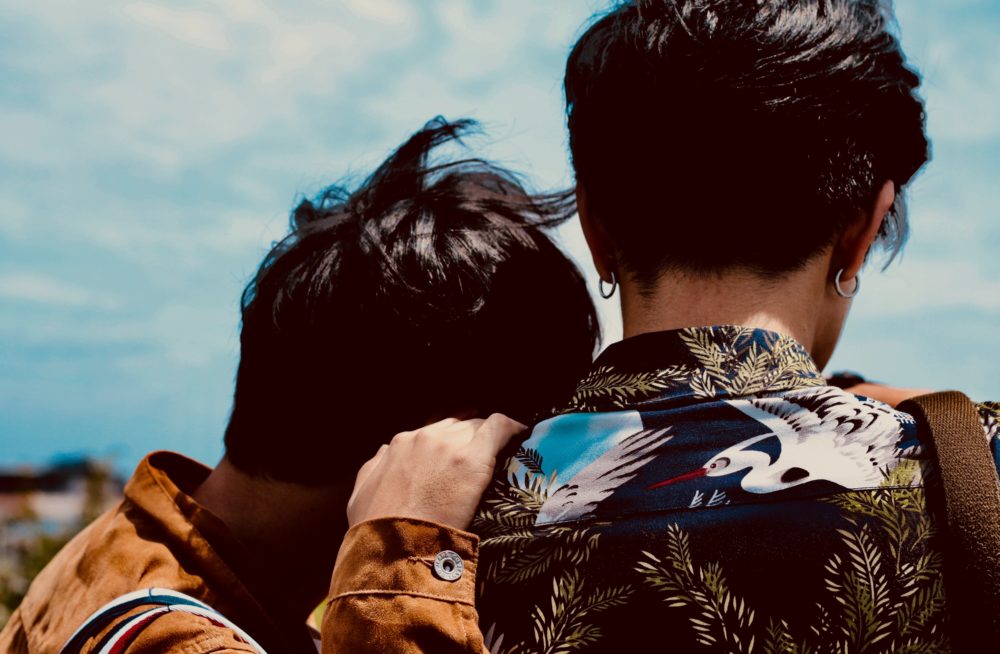The beloved Buddhist teacher Pema Chodron says generosity is the act of practicing three things:
- giving material things
- giving the gift of fearlessness
- driving away the darkness of ignorance
Giving Material Things
Material goods are the easiest for us to overcome–or, at the very least, the most straightforward. If we’re willing, there are pretty simple ways for us to practice this. As I said in a previous post, one easy option is to give something away every day, just to get used to the practice of letting go.
We often get stuck here, though, because we underestimate how strongly we’ve aligned how much we have with how much we feel we’re worth. And the stronger this connection is, the more generosity can feel threatening. Instead of feeling like a gift we’re offering to others, it’s perceived as a loss we experience in ourselves.
This is really just a mind game, when we observe it closely. Generosity doesn’t actually have anything to do with the amount of our material possessions we have at all. Think about it: there are millionaires, billionaires even, who still don’t feel secure enough in themselves to be generous. Their sense of self-worth is so tied to what they own that they can’t fathom parting with any of it (or much of it). And, conversely, there are people with far fewer resources than we have who are nevertheless far more generous with them. Generosity, in whatever form it takes, is a mindset. And lack of generosity, then, can be seen as an addiction to false comfort. (Nobody takes it with them when they go, right?)
Releasing our attachment to material goods by practicing generosity is a powerful way of rejecting the story of our worth being tied to our possessions. It provides an opportunity for us to see the world as something far beyond base capitalism. It gives us an opportunity to lead with our souls, not our fears.
Giving the Gift of Fearlessness
The second level of generosity moves beyond material things and is an offering of bravery on behalf of others. Yesterday, my social media feeds were flooded with reminders that courage is contagious. And it’s true. When we see someone take a stand, we feel empowered to do the same. Bravery begets bravery. By no means does fearlessness require us to be without fear. Don’t take it too literally. Consider fearlessness the act of “nevertheless:” even though I feel scared, even though I feel overwhelmed, even though I feel unprepared, nevertheless I will show up/stand up/speak out/act/be present.
Offering bravery on behalf of others is generous because it is a gift that is much needed and often in short supply. And it is so powerful. Pema Chodron says it can be as simple as offering someone a flashlight when they are afraid of the dark, or staying beside someone when they are scared. It doesn’t have to be a huge act of fearlessness; sometimes the most powerful moments are small, everyday things available to all of us. Sit next to a new person when they visit your work/school/event. Go with a loved one to the doctor’s office for that test. Leave a note of encouragement for a child who has a big day coming up.
I saw a beautiful expression of this kind of generosity recently in my dojang when a young girl was preparing to break her first board. She was so nervous about it, her sweet little arms were shaking. My Master was so patient with her. He walked her through the technique again, had her practice a very big yell, and called on us all to cheer and clap for her. She raised her arm, swung down her fist, and broke that board clean in half. I wish you could have seen the look on her face. Her eyes got so wide, her whole face lit up, and she started running around the dojang screaming, “I did it!” The whole room was electrified with the joy she felt at that moment, as she unleashed this new-found bravery into the world.
Driving Away the Darkness of Ignorance
The final form of generosity is not for the faint of heart, and it’s a lifelong commitment. It is a calling to drive away the darkness of ignorance. In other words, it’s asking us to live as an example of truth and goodness in the world, and teach others as we are able.
This is the most profound form of generosity because it is a gift that does not expire. Material goods may break down or give way, experiences of bravery may be impermanent. But opening our eyes to the truth, becoming aware of the pitfalls of false perception–within ourselves and the world around us–brings about real and lasting change. Think of it this way: when ignorance is lessened, we see an increase in compassion, kindness, and connection. We see a willingness to do what is right rather than simply what is convenient.
Ignorance is such a destructive force. It is darkness, because it prevents us from seeing the situation clearly and knowing what to do. Whenever we drive away that darkness, we are creating the opportunity for light not only to shine, but to expand.
When we learn how to bring our inner light, our basic human goodness, to bear on the world, we are offering the most sacred gift we have. And, as with fearlessness, it is an offering that can be contagious.
As I’ve practiced generosity this month, the simplest way to describe what I’ve realized is this: generosity is the act of showing up for each other. It’s offering people what they need, or just what might make them happy. It’s being present to them, listening well. It’s remembering that we are all connected and that my well-being will always be tied to yours. So if someone’s hungry, be generous with your food. When someone’s scared, be generous with your bravery. When someone is confused or ignorant, be generous with your compassion and wisdom, and be an example of a better way. This is all just the act of showing up for each other. We can do that, right?
May the light of generosity, in all its forms, shine brightly within us and around us in the days to come. The world needs it. And so do we.
***
If you’re joining me in the Paramita Project, this is the final weekend I’m practicing dana, generosity. (Officially, of course; I obviously plan to continue practicing generosity indefinitely!) On Monday, October 1, we will turn to shila/sila, which is translated as morality, ethics, or self-discipline. I hope you’ll join me in whatever way you can, whether that’s a week or a day or the whole 31 days. You can read more about the Paramita Project and you can read previous posts on September’s practice of generosity here, here, here and lastly, here.




